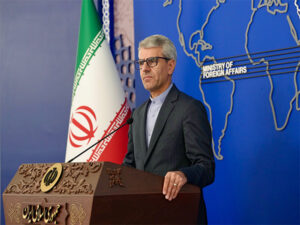Cash-strapped Pakistan explores external financing options after IMF deal
Islamabad, Jul 3 (PTI) With the IMF now on board, the cash-strapped Pakistan government is now considering meeting most of its external financing needs in the medium term through 10-15 years of international bonds and concessional multilateral loans, according to a media report on Monday.
It also plans to diversify local debt instruments to inflation-based bonds, list government papers on the stock exchange, and issue short-term Islamic and conventional floating rate products, the Dawn newspaper reported.
The Pakistan government and the International Monetary Fund (IMF) last week reached a long-awaited staff-level agreement to inject USD 3 billion into the ailing economy after months-long negotiations that pushed the country to the brink of default.
This is part of the new Medium-Term Debt Management Strategy, released by the Ministry of Finance on the weekend, for the fiscal years 2023 -2026, the report said.
“Availing maximum concessional external financing from bilateral and multilateral development partners” is one of the measures under the strategy to increase the average time to maturity of the external debt portfolio over the medium term, it said.
The strategy added that other measures would include “borrowing more in 10 years’ and 15 years’ tenors in the international capital market while keeping the consideration for cost and risk trade-offs”.
At the same time, the government would maximise efforts for contracting fresh commercial loans in relatively higher tenors (three years or more) compared to existing rollover tenures of no more than a year.
In addition, efforts would be geared towards re-profiling the existing stock of commercial loans from the short term to the medium and long term.
Under the strategy, the domestic market will remain the main source of funding to finance the fiscal deficit and refinance existing domestic debt, for which the government is planning to introduce multiple instruments to broaden the investor base and offer diversified investment avenues to investors which are closer to their investment horizons, income preferences and risk appetite.
For this, the government was also exploring the option of introducing inflation-linked bonds to attract insurance companies, pension funds and mutual funds that prefer to buy these instruments for their liability management.
The government is also considering listing and trading government securities through the stock exchange to support investor outreach.
Also on the plate is the option of asset-light structures based on Ijara, Murabaha or any other Sharia-compliant mode to raise funds, as assets available with the government are limited.
Talking about the strategy to increase multilateral funding, the Ministry of Finance said that because of renewed efforts to speed up the pace of project implementation, disbursements under project aid would increase over the medium term.
On the other hand, since policy-based funding is linked to macroeconomic stability, it expected the structural reforms initiated by the government to increase macroeconomic stability.
With these measures, the government aims to reduce the budget deficit from 7.9 per cent of the GDP in 2021-22 to 3.1pc by 2025-26, with average annual inflation steeply falling to around 6.5 per cent by 2025-26.
“With increased investor confidence, stable inflation, fairly valued exchange rate, improved current account balance and better fiscal and monetary management, economic growth is projected to reach 5.5 per cent per annum by FY26,” the paper said.
While approving the USD 3 billion Staff-level Agreement with Pakistan on Stand-by Agreement (SBA), the IMF said, “The new SBA will support the authorities’ immediate efforts to stabilise the economy from recent external shocks, preserve macroeconomic stability and provide a framework for financing from multilateral and bilateral partners.”
Steadfast policy implementation is key for Pakistan to overcome its current challenges, including through greater fiscal discipline, a market determined exchange rate to absorb external pressures, and further progress on reforms, particularly in the energy sector, to promote climate resilience, and to help improve the business climate, it said.






